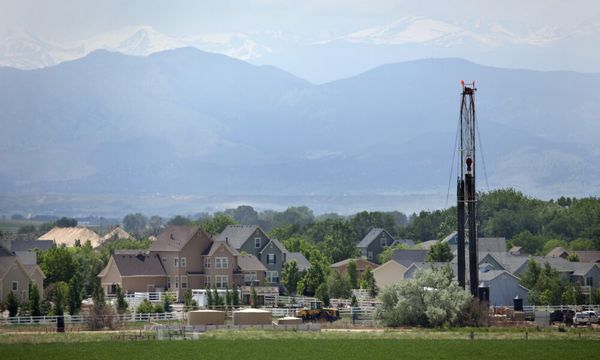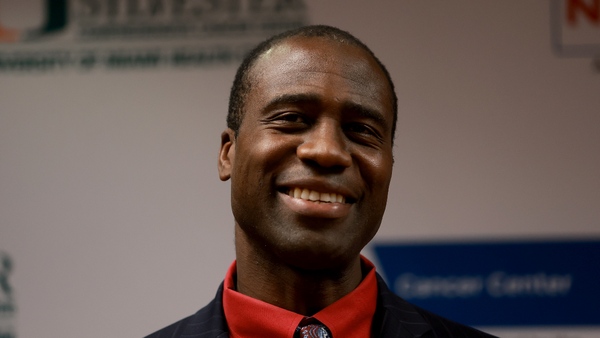When millions of people tuned in to watch the US presidential debate on September 10, a lot was hanging in the balance. Since becoming the Democratic nominee in August, Kamala Harris has ridden a wave of excitement and energy that moved the Democrats from four to five points behind Donald Trump in the polls, to ahead in nearly every swing state.
But, despite a rousing Democratic convention, this wave has not translated into an overall bounce in support. And a new set of polls released just days before the debate showed that the race had tightened and Harris’ momentum was waning.
So a lot was riding on her debate performance. Harris needed to introduce herself to the 28% of Americans that claimed they still didn’t really know her that well. Research has shown that lesser-known candidates have more to gain from a presidential debate.
The debate was her first biggest test going toe-to-toe with Trump, and she put on a masterclass of how to put him in his place. Harris was in full prosecutor mode. While Trump normally overpowers and bullies his political opponents, Harris was in control, often looking at him directly to make her points.
Harris dictated the debate from the beginning, when she confidently walked over to Trump to shake his hand. That set the tone, in stark contrast to the debate between incumbent president Joe Biden and Trump back in June when Biden’s raspy voice was a worrying sign for the Democrats of what was to come.
Early on in the debate, Harris was able to accomplish one of her main objectives for the evening: to get under Trump’s skin. She rattled him after answering a question on immigration, by turning the tables and talking about his rallies being so dull and self-indulgent that people often left early out of boredom.
Though Trump reportedly did not rehearse much for the debate, his advisers tried to get him to stay on message about policies and not engage in personal attacks. However, from the moment Harris poked him about his crowd size, she won the debate.
From that moment on, Trump struggled to stay focused and remain on message. He went off on tangents, spouting off at one point that immigrants in Springfield, Ohio, were stealing their neighbour’s dogs and cats and eating them. David Muir, one of ABC’s two moderators for the debate, quickly fact-checked him on this.
He also claimed that in states led by Democrats, babies were being killed after they were born. And he argued that Harris would support offering transgender operations to “illegal aliens” in prison. The more he spoke, the more he dug himself into a hole.
Every time Harris poked him, Trump took the bait. One of the more viral moments came when she said he was still processing being “fired by 81 million people” in 2020. That just provoked him to go down the rabbit hole of whining about how he believes the election was stolen.
While that may resonate with about a third of American voters who believe Biden was not legitimately elected president, he appeared to be moaning about himself again.
Trump looked not only unhinged and unstable – but un-presidential. Harris for her part, at times, looked on either amused by his antics or with pity.
The split screen of the two candidates showed a calm and collected Harris compared with an exasperated and aggravated Trump. While the split screen benefited Trump in his last debate with Biden, this time it clearly didn’t.
Some of Harris’ best jabs took issue with his weaknesses in foreign policy. She claimed that Putin, who Trump has publicly admired, would eat him for lunch.
She said that Ukraine would be under Putin’s control if Trump was president, and added that Poland would be next in Putin’s sights. She then encouraged Trump to tell the 800,000 Polish Americans in Pennsylvania, where the debate was being held, about his ostensible support of the Kremlin.
Trump seemed to lament the loss of Russian soldiers, and twice refused to directly answer a question about whether he wanted Ukraine to win the war. Without evidence, he claimed that the war would end within 24 hours after he is elected president.
Harris also explained how his military advisers found him to be a “disgrace”, and suggested that foreign governments are laughing at him. Trump defended himself, saying that he was liked by the Hungarian prime minister, Viktor Orban – hardly a leader with democratic credentials.
Will any of this matter?
Trump showed how concerned he was about his performance by going into the spin room where reporters gather immediately after the debate. He announced to the press that this was his “best debate ever” in a clear attempt to gain control over the post-debate narrative.
Fox News also quickly posted an opinion piece arguing that Harris was the “clear winner” – a stark demonstration of how badly things went for Trump. But a few things that may help Trump’s team sleep better.
Based on some reactions from undecided voters, Harris was still not clear enough where she stands on specific policies. She chose to focus much of her attention on getting Trump to implode, as well as her broader agenda. There is still room for her to spell out how she represents change.
Research also demonstrates that while debates matter in the immediate aftermath, their effect tends to dissipate quickly after that. In Trump’s first debate against Hillary Clinton in 2016, for example, only 24% of those polled thought he won the debate. Clinton famously went on to lose to him in November.
But going in Harris’ favour is that voters in key states such as Pennsylvania, Virginia and Minnesota can start voting within days of the debate. While Harris didn’t do enough to clarify all of her policy stances to voters, she effectively made the case against Donald Trump.
Natasha Lindstaedt does not work for, consult, own shares in or receive funding from any company or organisation that would benefit from this article, and has disclosed no relevant affiliations beyond their academic appointment.
This article was originally published on The Conversation. Read the original article.







